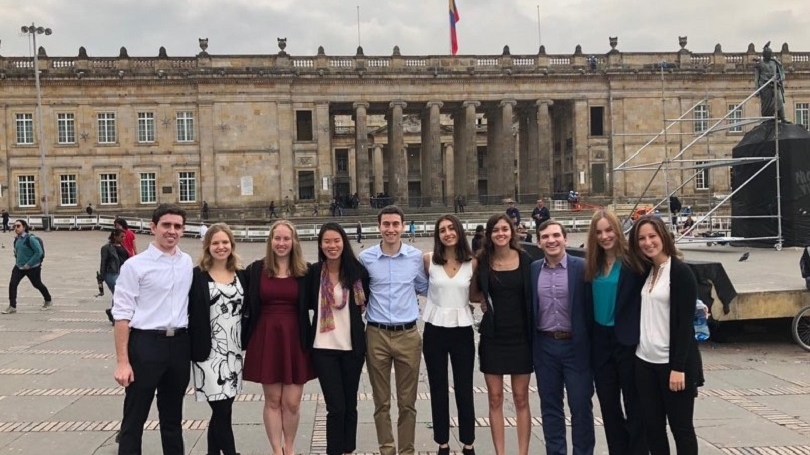
- Public Policy
- Leadership
- Funding
- News & Events
- About the Center
Back to Top Nav
Back to Top Nav
Back to Top Nav
Back to Top Nav
Global citizenship and engagement are key. Understanding one’s place in the world and the complexities of international policy dilemmas truly allow for one to become a global citizen—an identity especially important in our modern world. Public Policy 85: Global Policy Leadership (PBPL 85) with Professor Charles Wheelan ’88 offers students a unique experimental learning opportunity that allows them to deconstruct cross-cultural barriers and become well versed in the intricacies of global policy through a combination of classroom instruction and international travel.
The course begins in the classroom during the fall term, when a select group of students study the history and context of a public policy challenge in a particular country or region. Students are introduced to the process of assessing problems and developing solutions to the challenge, practices important to cultivating civically engaged, global leaders.
The class then travels to the country or region during Dartmouth’s winter interim to conduct field research. Students meet with local policy leaders: politicians, academics, civil society leaders, journalists, business leaders, diplomats, and other in-country experts who help inform their analyses.
This travel deepens the student’s understanding of the policy issues and builds on leadership and communication skills through direct contact with policymakers and other leaders abroad.
By the end of the course, students are completely invested in the topic—it is now personal, nuanced, and tangible.
For a final project, the students jointly write and distribute a detailed memo with specific policy recommendations, as targeted and actionable as possible. This requirement helps to synthesize the lessons learned from ten weeks of study on campus with their field work.
The final project also gives students the chance to learn and practice transferable workplace skills, such as conducting interviews, project management, teamwork, negotiation, and problem solving.
The course is in its six iteration, with past topics covering: economic reform in India (2013), the peace process in Northern Ireland (2014), the U.S. role in the Israeli-Palestinian conflict (2015), an evaluation of civil society in Ukraine utilizing USAID assessment methodologies (2016), and Liberia 2030: A Political and Economic Roadmap (2017). This year the topic is the Colombia peace accords signed in 2016. Students will spend two weeks in Bogota in early December for field research.
Written by Alexandrea Keith '20, Rockefeller Center Student Program Assistant for Communications